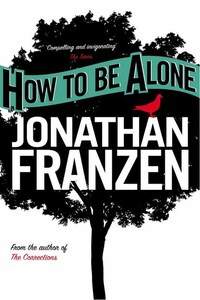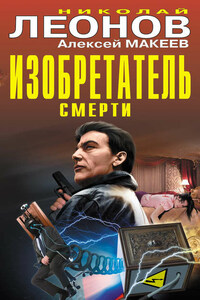JONATHAN FRANZEN
HOW TO BE ALONE
ESSAYS
Fourth Estate An imprint of HarperCollinsPublishers Ltd. 1 London Bridge Street London SE1 9GF
www.harpercollins.co.uk
First published in Great Britain by Fourth Estate in 2002
Copyright ©Jonathan Franzen 2002
Jonathan Franzen asserts the moral right to be identified as the author of this work
A catalogue record for this book is available from the British Library
All rights reserved under International and Pan-American Copyright Conventions. By payment of the required fees, you have been granted the nonexclusive, nontransferable right to access and read the text of this ebook on-screen. No part of this text may be reproduced, transmitted, downloaded, decompiled, reverse engineered, or stored in or introduced into any information storage and retrieval system, in any form or by any means, whether electronic or mechanical, now known or hereinafter invented, without the express written permission of HarperCollins ebooks
HarperCollinsPublishers has made every reasonable effort to ensure that any picture content and written content in this ebook has been included or removed in accordance with the contractual and technological constraints in operation at the time of publication
Source ISBN: 9780007153589
Ebook Edition © OCTOBER 2012 ISBN: 9780007389063 Version: 2017-06-09
From the reviews of How to Be Alone:
‘Stunning … Each page is studded with irresistible writing which leaves you breathless for more. Franzen’s strength is his ability to combine a rigorous intellectual approach with an upbeat energy, using language which touches the heart as surely as the head’
Time Out
‘How to Be Alone reveals [Franzen] to be an impressively versatile non-fiction writer, equally sure of touch and tone whether reporting on the US prison system, reviewing sex self-help books, or joining the debates about privacy and smoking with a rare acuity and sanity’
Guardian
‘Franzen possesses an incredibly strong narrative voice – his tone is packed with confidence, exuberance and energy … In its ambition, its intellectual vigour and its knowledge, [How to Be Alone] more than justifies its place on any bookshelf … At his best, [Franzen] is nothing less than mesmerising’
Sunday Business Post
‘Full of quips and aphorisms, [Franzen] is the Montaigne of our times, both inventively comic and deadly serious … Beguiling … You love him for his scrupulous honesty and for his arresting originality’
Harpers & Queen
‘Franzen’s almost casual brilliance with language can leave you giddy with the thrill’
Irish Times
‘An engrossing read where the combination of plot with technical detail is exquisite … ideal for anyone who enjoys intelligent writing’
Herald, Glasgow
‘Much thought and craft has gone into these essays … [Franzen’s] writing is an antidote in itself to the gloom it so eloquently describes’
Sunday Telegraph
MY THIRD NOVEL, The Corrections, which I’d worked on for many years, was published a week before the World Trade Center fell. This was a time when it seemed that the voices of self and commerce ought to fall silent—a time when you wanted, in Nick Carraway’s phrase, “the world to be in uniform and at a sort of moral attention forever.” Nevertheless, business is business. Within forty-eight hours of the calamity, I was giving interviews again.
My interviewers were particularly interested in what they referred to as “the Harper’s essay.” (Nobody used the original title, “Perchance to Dream,” that the magazine’s editors had given it.) Interviews typically began with the question: “In your Harper’s essay in 1996, you promised that your third book would be a big social novel that would engage with mainstream culture and rejuvenate American literature; do you think you’ve kept that promise with The Corrections?” To each succeeding interviewer I explained that, no, to the contrary, I had barely mentioned my third novel in the essay; that the notion of a “promise” had been invented out of thin air by an editor or a headline writer at the Times Sunday Magazine; and that, in fact, far from promising to write a big social novel that would bring news to the mainstream, I’d taken the essay as an opportunity to renounce that variety of ambition. Because most interviewers hadn’t read the essay, and because the few who had read it seemed to have misunderstood it, I became practiced at giving a clear, concise précis of its argument; by the time I did my hundredth or hundred-tenth interview, in November, I’d worked up a nice little corrective spiel that began, “No, actually, the Harper’s essay was about abandoning my sense of social responsibility as a novelist and learning to write fiction for the fun and entertainment of it …” I was puzzled, and more than a little aggrieved, that nobody seemed able to discern this simple, clear idea in the text. How willfully stupid, I thought, these media people were!














